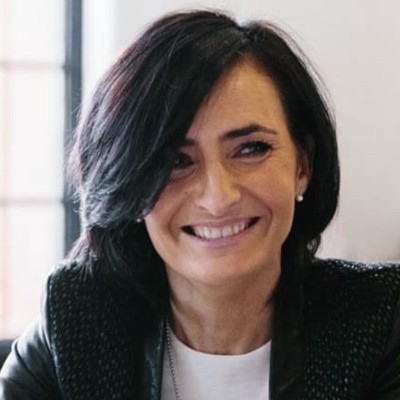Leading Innovation in Education through Ecosystem Awareness
- Olga Cuesta

- Nov 6, 2025
- 4 min read
In organisations, we often treat innovation as a department, a function, or a project, something we do. But real innovation is something we host. It asks us to widen the aperture of our attention, to engage with what is emerging rather than what we already know. It requires a shift in how we see systems, how we listen, and how we cultivate the conditions for transformation to take root.
I have recently been undertaking an Ecosystem Leadership Program with Otto Scharmer and the Presencing Institute, working through the practices for transforming the self, society and business. Scharmer’s work on Presencing and Ecosystem Leadership provides a language and a map for this shift. His Theory U is less of a framework to apply and more of a mirror. It reminds us that change in systems begins with a change in consciousness.
This is not purely philosophical. It has direct implications for how we lead innovation in education, and in this article I will highlight five of those implications in the context of a project we work on to transform education.
1. Bridging Innovation Silos
The education ecosystem is inherently fragmented. Universities, employers, students, government bodies and community organisations often work to different rhythms with different incentives. Innovation efforts typically remain contained within organisational boundaries, which limits both imagination and impact.
Ecosystem leadership asks us to dissolve those boundaries and bridge across them.
Currently I am leading a project with my team called Earn While You Learn (EWYL). The key idea is to create an alternative learning pathway where students can gain formal qualifications while being employed in meaningful roles that are directly connected to the skills they are developing. It is a response to several systemic tensions in higher education: students who cannot afford to study full-time, employers who cannot find job-ready talent, and universities seeking to remain relevant in a labour market that is shifting faster than curriculum cycles.
Projects like an Earn While You Learn (EWYL) are designed to reconnect these key actors. Rather than improving one part of the system, the intention is to re-pattern the relationships between learners, educators and employers. In this way, innovation becomes a process of re-aligning the system instead of simply refining operational process.
Scharmer’s U-Journey reinforces this. Meaningful innovation begins not with fast ideation but with deep co-sensing, listening to what the system itself is teaching us before we define solutions. EWYL has evolved because we allowed it to be shaped by the voices, needs and constraints of the ecosystem, rather than locking the concept early.
This is systems thinking in practice. Value emerges in the interactions, not the individual parts.
2. Cultivating the Conditions for Innovation
Most innovation projects fail not because the idea is inadequate but because the relational conditions are not in place. Trust is thin. Alignment is unclear. The language for collaboration is missing. Scharmer refers to this shared relational environment as the social field.
Much of my work has focused on tending to this field. Through co-design sessions, shared journey mapping and reflective dialogue, we create the space for different parts of the system to see themselves within the larger whole. These practices strengthen the foundations on which innovation can grow.
This is not soft work. It is structural work. Solutions must have somewhere to land.
Here, design thinking, systems thinking and business design converge. We listen deeply. We understand context. We design from the system, not at the system.
3. Leading from Presence
Scharmer emphasises that the inner place from which we operate shapes the outcomes we create. Innovation delivered from urgency and reactivity generates more urgency and reactivity. Innovation led from presence generates clarity and grounded action.
I have found that innovation leadership requires space to pause. To notice assumptions. To see the system rather than react to it. My background in mindfulness and contemplative practice has allowed me to bridge stillness into the professional environment. Silence and reflection are not separate from innovation work. They are part of the discipline.
4. Prototyping in Complexity
In complex systems, change does not follow a linear path. There is no straight progression from idea to implementation. Scharmer’s emphasis on prototyping and sensing aligns with business design logic. Build only what is needed to learn, not to prove.
In EWYL, each prototype is a way of listening through action. We experiment at a scale small enough to learn yet real enough to matter. The insight is not in the artefact but in the feedback loop that the prototype creates.
This approach requires patience, as well as strength in holding the tension between emergent learning and organisational expectations around budgeting, planning and delivery.
5. Navigating the Long Horizon
Education sits within multiple overlapping challenges: affordability, declining trust, questions of relevance and widening inequality. The instinct is often to optimise the present. But optimisation cannot solve what is structural.
Ecosystem leadership asks us to hold two time horizons at once. We must deliver value for learners today. At the same time, we must design the models of education that will feel obvious in the future but are not recognised widely yet.
This dual attention is the work.
The Work Behind the Work
Scharmer describes this shift as moving from ego-system awareness to ecosystem awareness. This is not a theoretical proposition. It is deeply practical.
Transformation in education will not come from more strategy documents or refined performance metrics. It will come from how well we listen, how we relate, how we prototype and how we sustain coherence across the system.
Innovation is not a function.
It is a way of being in relationship with the future and with each other.
About Olga
Innovation and growth expert helping organisations navigate change, build scalable innovation programs, and design products, services, and business models that truly make an impact. Director of Corporate Innovation, Strategy and Product at Online Education Services (OES).
New perspectives on Growth and Innovation. Delivered every Full Moon.



